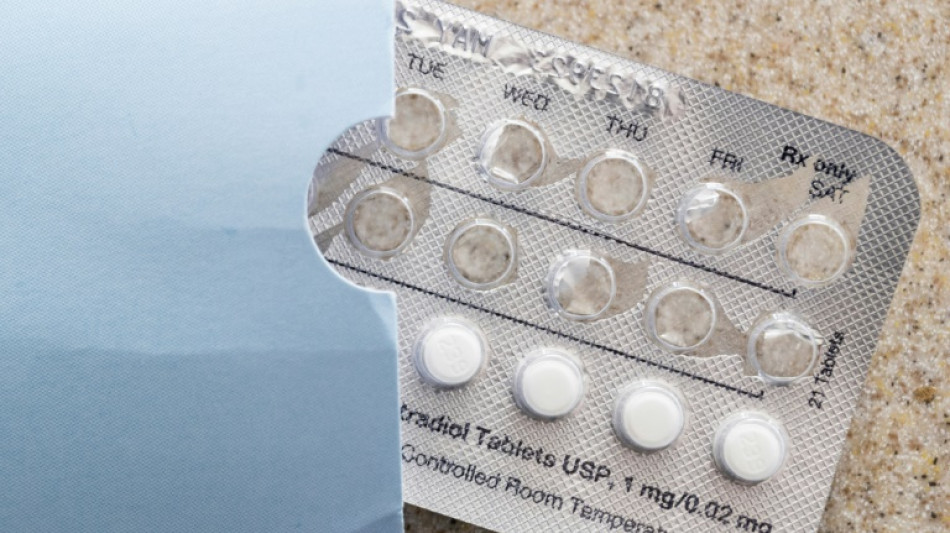
-
 Moscow revels in Trump's Greenland plans but keeps concerns quiet
Moscow revels in Trump's Greenland plans but keeps concerns quiet
-
Global tourism hit new record level in 2025: UN

-
 Senegal poised to party with parade honouring AFCON champs
Senegal poised to party with parade honouring AFCON champs
-
Osaka emerges for Melbourne opener under hat, veil and parasol

-
 Dogsled diplomacy in Greenland proves elusive for US
Dogsled diplomacy in Greenland proves elusive for US
-
Almost half of Kyiv without heat, power, after Russian attack

-
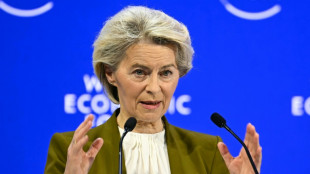 EU vows 'unflinching' response to Trump's Greenland gambit
EU vows 'unflinching' response to Trump's Greenland gambit
-
Osaka steals show at Australian Open as Sinner strolls through

-
 Brignone impresses in first run of Kronplatz giant slalom in World Cup comeback
Brignone impresses in first run of Kronplatz giant slalom in World Cup comeback
-
Osaka emerges for Melbourne opener under white hat and umbrella

-
 Malawi suffers as US aid cuts cripple healthcare
Malawi suffers as US aid cuts cripple healthcare
-
Bessent says Europe dumping US debt over Greenland would 'defy logic'

-
 Freeze, please! China's winter swimmers take the plunge
Freeze, please! China's winter swimmers take the plunge
-
Talks between Damascus, Kurdish-led forces 'collapse': Kurdish official to AFP

-
 In-form Bencic makes light work of Boulter at Australian Open
In-form Bencic makes light work of Boulter at Australian Open
-
Spain mourns as train disaster toll rises to 41

-
 Sinner into Melbourne round two as opponent retires hurt
Sinner into Melbourne round two as opponent retires hurt
-
Israel begins demolitions at UNRWA headquarters in east Jerusalem

-
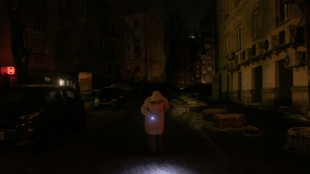 Almost half of Kyiv without heat, power, after Russian attack: govt
Almost half of Kyiv without heat, power, after Russian attack: govt
-
Veteran Monfils exits to standing ovation on Australian Open farewell

-
 Precision-serving former finalist Rybakina powers on in Melbourne
Precision-serving former finalist Rybakina powers on in Melbourne
-
South Korea's women footballers threaten boycott over conditions

-
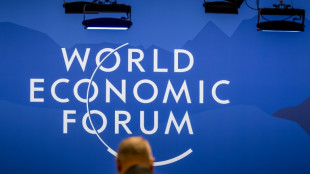 Equities sink, gold and silver hit records as Greenland fears mount
Equities sink, gold and silver hit records as Greenland fears mount
-
Australian lawmakers back stricter gun, hate crime laws

-
 EU wants to keep Chinese suppliers out of critical infrastructure
EU wants to keep Chinese suppliers out of critical infrastructure
-
AI reshaping the battle over the narrative of Maduro's US capture

-
 Penguins bring forward breeding season as Antarctica warms: study
Penguins bring forward breeding season as Antarctica warms: study
-
Vietnam leader pledges graft fight as he eyes China-style powers

-
 Ukrainian makes soldier dad's 'dream come true' at Australian Open
Ukrainian makes soldier dad's 'dream come true' at Australian Open
-
'Timid' Keys makes shaky start to Australian Open title defence

-
 Indiana crowned college champions to complete fairytale season
Indiana crowned college champions to complete fairytale season
-
South Koreans go cuckoo for 'Dubai-style' cookies

-
 Harris leads Pistons past Celtics in thriller; Thunder bounce back
Harris leads Pistons past Celtics in thriller; Thunder bounce back
-
Tjen first Indonesian to win at Australian Open in 28 years
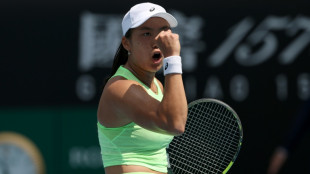
-
 Long-delayed decision due on Chinese mega-embassy in London
Long-delayed decision due on Chinese mega-embassy in London
-
Djokovic jokes that he wants slice of Alcaraz's winnings

-
 Trump tariff threat 'poison' for Germany's fragile recovery
Trump tariff threat 'poison' for Germany's fragile recovery
-
Tourists hit record in Japan, despite plunge from China

-
 Jittery Keys opens Melbourne defence as Sinner begins hat-trick quest
Jittery Keys opens Melbourne defence as Sinner begins hat-trick quest
-
The impact of Trump's foreign aid cuts, one year on

-
 Belgian court weighs trial for ex-diplomat over Lumumba killing
Belgian court weighs trial for ex-diplomat over Lumumba killing
-
Inside China's buzzing AI scene year after DeepSeek shock

-
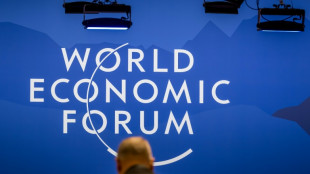 Asian markets sink, silver hits record as Greenland fears mount
Asian markets sink, silver hits record as Greenland fears mount
-
Shark bites surfer in Australian state's fourth attack in 48 hours

-
 North Korea's Kim sacks vice premier, rails against 'incompetence'
North Korea's Kim sacks vice premier, rails against 'incompetence'
-
Spain mourns as train crash toll rises to 40

-
 'Very nervous' Keys makes shaky start to Australian Open title defence
'Very nervous' Keys makes shaky start to Australian Open title defence
-
Vietnam leader promises graft fight as he eyes China-style powers

-
 Dad-to-be Ruud ready to walk away from Australian Open
Dad-to-be Ruud ready to walk away from Australian Open
-
North Korea's Kim sacks senior official, slams 'incompetence'


All hormonal contraceptives increase breast cancer risk: study
All hormonal contraceptives carry a slightly increased risk of breast cancer, including the increasingly popular progestogen-only pills, according to a study published on Tuesday.
The researchers who carried out the study stressed that the increased risk of breast cancer needs to be weighed against the benefits of hormonal contraceptives, including the protection they provide against other forms of female cancer.
Previous studies have established an increased risk of breast cancer from two-hormone, or combined, contraceptives that use both estrogen and progestogen.
While the use of progestogen-only contraceptives has been on the rise for well over a decade, little research had been performed previously on their links to breast cancer.
The study, published in the journal PLOS Medicine, found that the risk of a woman developing breast cancer was about the same for hormonal contraceptives using both estrogen and progestogen as for those using just progestogen.
According to the study, women taking hormonal contraceptives have a 20 to 30 percent higher risk of developing breast cancer than those who do not use them.
The findings are similar to those published previously, including in a vast 1996 study.
The risk remains about the same regardless of the delivery method -- oral pill, IUD, implant or injection -- or whether it is a combined pill or progestogen alone.
Taking into account that the likelihood of breast cancer increases with age, the authors of the study calculated how much absolute excess risk is associated with hormonal contraceptives.
For women taking hormonal contraceptives for a period of five years between the ages of 16 to 20, it represented eight cases of breast cancer per 100,000, they said.
Between 35 and 39 years old, it was 265 cases per 100,000.
- 'Very small increase in absolute risk' -
"Nobody wants to hear that something that they're taking is going to increase their risk of breast cancer by 25 percent," said Gillian Reeves, a professor of statistical epidemiology at the University of Oxford and a co-author of the study.
"What we're talking about here is very small increase in absolute risk," Reeves said.
"These increases in risk for breast cancer have to, of course, be viewed in the context of what we know about the many benefits of taking hormonal contraceptives," she added.
"Not just in terms of birth control, but also because we know that oral contraceptives actually provide quite substantial and long term protection from other female cancers, such as ovarian cancer and endometrial cancer."
The study also confirmed, like others, that the risk of breast cancer declines in the years after a woman stops using hormonal contraceptives.
Stephen Duffy, a professor at Queen Mary University of London who did not take part in the study, described the findings as "reassuring in that the effect is modest."
The study involved data from nearly 10,000 women under the age of 50 who developed breast cancer between 1996 and 2017 in the United Kingdom, where the use of progestogen-only contraceptives is now as widespread as the combined method.
Reeves said there were several explanations for the growing use of progestogen-only contraceptives.
They are recommended for women who are breast-feeding, who may be at risk of cardiovascular problems or smokers above the age of 35.
"It might just be because women are taking hormonal contraceptives possibly into later years now," Reeves said.
"So they are naturally at higher risk of those other conditions for which risk is increased with combined contraceptives."
C.Meier--BTB



